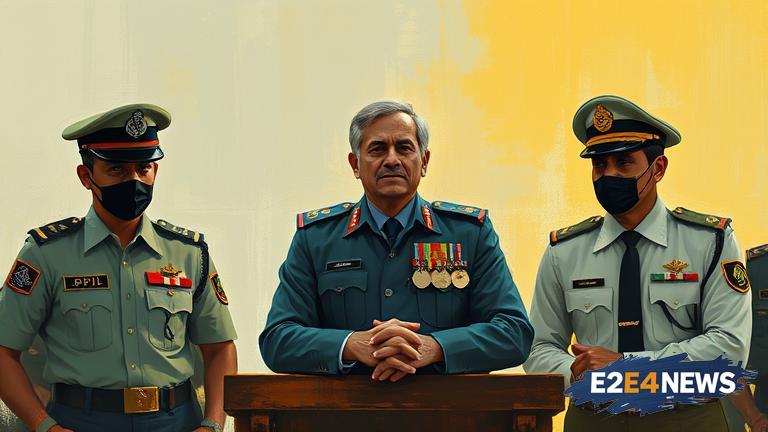A recent controversy has erupted in India, with the Central Industrial Security Force (CISF) taking over the security at the residence of a senior Congress leader. This move has sparked a heated debate, with opposition parties questioning the government’s authority and motives. Congress leader Mallikarjun Kharge has asked who is running the country, implying that the government is overstepping its bounds. The CISF is a paramilitary force that is responsible for providing security to various government installations and dignitaries. However, the opposition is alleging that the government is using the CISF to intimidate and harass its political opponents. The Congress party has accused the government of trying to create an atmosphere of fear and intimidation, and has demanded that the CISF be withdrawn from the residence of its leader. The government, on the other hand, has maintained that the CISF deployment is a routine security measure, and that it is not intended to harass or intimidate anyone. The opposition has also raised questions about the timing of the CISF deployment, coming as it does ahead of the upcoming state elections. The Congress party has alleged that the government is trying to use the CISF to influence the outcome of the elections, and has demanded that the Election Commission take notice of the issue. The CISF row has also sparked a wider debate about the role of paramilitary forces in Indian politics, and the need for greater transparency and accountability in their deployment. The opposition has argued that the CISF and other paramilitary forces should be used only for legitimate security purposes, and not for political vendetta. The government has maintained that it is committed to upholding the law and maintaining order, and that the CISF deployment is necessary for the security of the country. However, the opposition is not convinced, and has vowed to continue its protest against the CISF deployment. The CISF row has also highlighted the growing tensions between the government and the opposition, and has raised questions about the future of Indian politics. The Congress party has accused the government of being authoritarian and dictatorial, and has demanded that it respect the rights and freedoms of the opposition. The government, on the other hand, has maintained that it is committed to democracy and the rule of law, and that it will not be intimidated by the opposition’s protests. The CISF row is likely to continue to be a major issue in Indian politics, with the opposition vowing to take its protest to the streets. The government will need to address the concerns of the opposition and provide greater transparency and accountability in the deployment of paramilitary forces. The CISF row has also sparked a wider debate about the need for police reforms in India, and the need for greater accountability and transparency in the functioning of the police and paramilitary forces. The opposition has argued that the police and paramilitary forces should be free from political interference, and that they should be accountable only to the law. The government has maintained that it is committed to police reforms, and that it will take steps to ensure that the police and paramilitary forces are accountable and transparent. However, the opposition is not convinced, and has vowed to continue its protest against the CISF deployment. The CISF row has highlighted the growing tensions between the government and the opposition, and has raised questions about the future of Indian politics. The Congress party has accused the government of being authoritarian and dictatorial, and has demanded that it respect the rights and freedoms of the opposition. The government, on the other hand, has maintained that it is committed to democracy and the rule of law, and that it will not be intimidated by the opposition’s protests. The CISF row is likely to continue to be a major issue in Indian politics, with the opposition vowing to take its protest to the streets. The government will need to address the concerns of the opposition and provide greater transparency and accountability in the deployment of paramilitary forces. The CISF row has also sparked a wider debate about the role of the media in Indian politics, and the need for greater freedom and independence of the media. The opposition has argued that the media should be free from government interference, and that it should be able to report on the CISF row without fear of reprisal. The government has maintained that it respects the freedom of the media, and that it will not interfere with the media’s reporting on the CISF row. However, the opposition is not convinced, and has vowed to continue its protest against the CISF deployment. The CISF row has highlighted the growing tensions between the government and the opposition, and has raised questions about the future of Indian politics. The Congress party has accused the government of being authoritarian and dictatorial, and has demanded that it respect the rights and freedoms of the opposition. The government, on the other hand, has maintained that it is committed to democracy and the rule of law, and that it will not be intimidated by the opposition’s protests.
